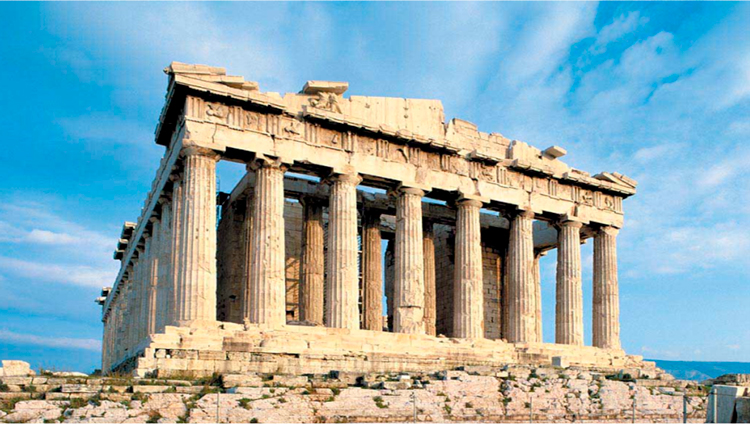When I tell people that one of my majors is Classics, I am either met with confused smiles or asked “Why?” or “What’s that?” People usually assume I am referring to more recent classical literature such as that written in the 19th century. There is also the assumption that being a Classics major leaves you with no other career option outside of teaching.
Classics is a discipline which encompasses the languages, politics, literature, and history of the Ancient Greek and Roman cultures, and is a program that, though small, grants you opportunities you will not get to experience anywhere else. These experiences include:
1. The feeling you get when watch something or read a book and realize, “Wait, this seems familiar…”

King Triton | Disney’s The Little Mermaid
It’s easy to assume that the plays, poems, and myths you read and study as a Classics major are not relevant today because of their age, but this is far, far from the truth. These works are still incredibly pervasive in our society today, and even if a film or book isn’t a direct retelling of one of these ancient stories it’s likely they will include an allusion to at least one of them. Being able to recognize this gives you a feeling of achievement, of glee. An “ah-ha!” moment that helps contextualize and explain what is occurring in the modern work. You get the satisfaction of seeing firsthand just how much these stories have inspired our society today.
One of the first books I read during my first semester of college was Ovid’s Metamorphoses, a collection of around 300 different myths. During this time
I also frequently had Disney movie marathons with my suitemates and was excited to learn that characters like Hercules and King Triton existed outside of their respective movie universes. To this day I can’t watch Hercules without knowing that he eventually goes mad and kills Meg.
When I first reread Frankenstein after coming to college I freaked out when I realized that the subtitle was “The Modern Prometheus”– suddenly the book was contextualized in a way that made me much more aware of its themes and the faults of Victor and I was able to gain a much better understanding of the novel.
I even had this feeling the first time I listened to the Hamilton soundtrack! When I heard Eliza sing “You have married an Icarus, he has flown too close to the sun,” I remember pausing the song and smiling at how clever the lyric was and how much further it helped develop Hamilton’s personality.

“You have married an Icarus, he has flown too close to the sun” | Leah Anderson
2. A bookshelf overflowing with works written thousands of years ago that none of your non-Classics major friends have read or even heard of.
As a Classics major, many of my classes are literature based so I end up buying around 10-20 books per semester. These titles range from plays to epic poems to myths to novels, with authors ranging from figures such as Homer and Euripides to Statius and Heliodorus.
The best feeling is having someone visit your room for the first time and see a title that catches your eye. They inevitably ask “What’s that about?” and give you an opportunity to wax on about your favorite books to someone new who hasn’t yet begged you to stop.
3. Being immersed in a small, close-knit community made up of people who share your interests.

A bookshelf full of classics | University of Pennsylvania’s Classical Department
Because the Classics programs at colleges are usually small, it is a much different environment that the one you are immersed in in other programs. You are able to easily speak to and build relationships with your professors that help you build a network for your future beyond college.
You also become part of a community full of students – and professors – who enjoy and geek out over the same concept and books as you so you have opportunities to share and debate ideas as well as someone you can text every so often with a quote or passage you found hilarious. (Statius’s description of Oedipus lurking in an underground lair in the Thebaid is so dramatic that I giggle every time I think of it.)
4. A deep connection to the past.

The Parthenon | Wikipedia
Similar to the recognition you have of how literature from the Classical period has influenced modern works, you also gain a connection to the past through the understanding of how these past civilizations have shaped the modern world, from our architecture to our politics!
5. Feeling secure in the knowledge that there is a plethora of possibilities for you to explore in the future.

Comparison Majors to LSAT Verbal Scores | Professor Robert Anderson, Pepperdine University School of Law
When, inevitably, people assume that the only thing to do with a Classics degree is teach, feel secure in knowing that this is far from your only option.
Classics majors consistently score higher on the language portion of the LSAT exam, making the degree an excellent choice for those who desire a future in law.
The major is also a great way to enter into archaeology, museum curating and research, politics, library sciences, and even more! There is no limit to what you can do as a Classics major!

